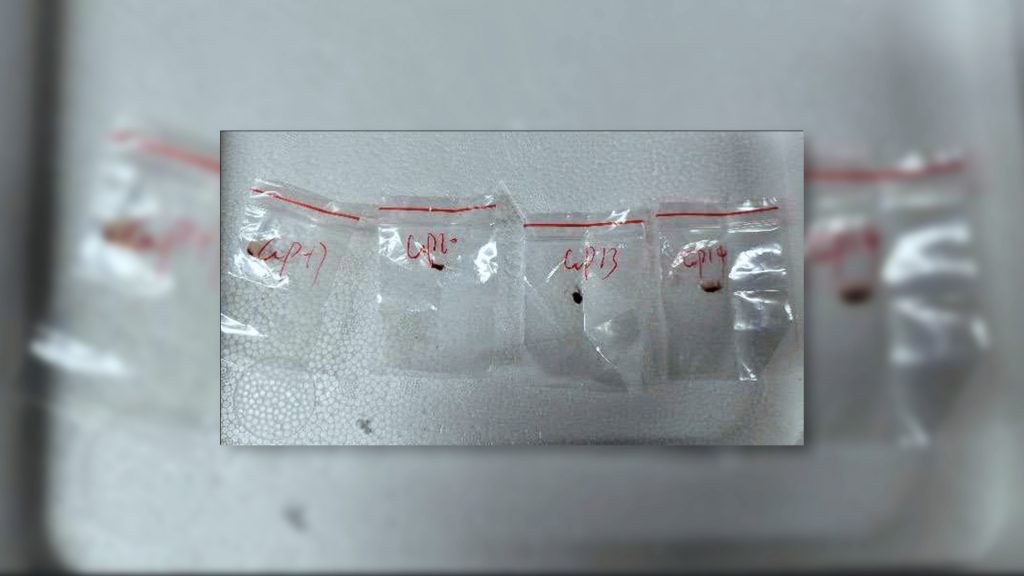Chinese nationals charged with trying to smuggle ‘agroterrorism’ pathogen to US

U.S. authorities charged a pair of Chinese nationals with smuggling a “potential agroterrorism weapon” into the United States. Investigators said the two people accused of the crime were a couple, and one of them works at the University of Michigan.
The charges
In a press release on Tuesday, June 3, the United States Attorney’s Office for the Eastern District of Michigan said Zunyong Liu, 34, and his girlfriend, Yunqing Jian, 33, were charged with conspiracy to smuggle a “dangerous biological pathogen” into the United States for research they were conducting at a University of Michigan laboratory. Both face charges of making false statements to investigators as well.
The investigation
Unbiased. Straight Facts.TM
Fusarium graminearum causes $1 billion in crop losses within the United States annually, according to the U.S. Department of Agriculture.

The FBI Counterintelligence Division led the investigation into the couple’s alleged smuggling.
FBI officials said Liu had small bags of the fungus known as Fusarium graminearum, which causes diseases capable of wiping out crops like wheat, barley and rice. U.S. officials stated that Fusarium head blight (FHB) causes billions of dollars in losses to crops worldwide each year. It is also toxic to humans and livestock if consumed, causing vomiting, diarrhea, headache, fever, liver damage and is linked to birth defects in humans and livestock.
Investigators said Liu was at Detroit Metropolitan Airport in July when border agents found the fungus in his backpack. The small particles of fungus material were found in four baggies inside of tissues, according to authorities.
The criminal complaint
The criminal complaint said that Liu and Jian studied the fungus as college students in China and since 2023 Jian had been employed at the University of Michigan’s Molecular Plant-Microbe Interaction Laboratory.
Liu first told agents he was unaware where the baggies came from, but his story changed upon further questioning. Investigators said he eventually told border officers that he concealed the samples in his backpack because he was aware of rules against the transportation of such materials and had wrapped them in tissues so authorities wouldn’t find them.
The complaint said Liu intended to use the University of Michigan’s campus to continue his study of the fungus. When authorities questioned Jian, she told them she knew nothing of Liu’s smuggling of the pathogen or intention to research the fungus, according to U.S. prosecutors.
The plan
Detectives said a further investigation revealed that Liu and Jian coordinated on the plan to bring the pathogen overseas through WeChat messages dating back to 2022 in which they discussed sneaking in seeds from the crop-killing fungus into the U.S. They said Liu told Jian that he had put the seeds in his boots inside a small “ziplock bag.” Jian acknowledged the text and told him, “that’s good,” and, “Just put it in your shoes.”
During an appearance in federal court on Tuesday, June 3, a judge ordered Jian to remain in U.S. custody as she was deemed a flight risk. Liu, however, who was not allowed into the U.S. after the pathogen was discovered in his backpack, remains on the loose.
Authorities respond
U.S. Attorney Jerome Gorgon said in a statement that the alleged crimes “of these Chinese nationals – including a loyal member of the Chinese Communist Party – are of the gravest national security concerns.”
The Chinese Ministry of Foreign affairs responded by saying it was not aware of the crimes.
“The Chinese government has always required citizens overseas to strictly abide by local laws and regulations, while also safeguarding their legitimate rights and interests in accordance with the law,” a spokesperson for the ministry said in a news conference Wednesday, June 4.
University of Michigan’s response
The University of Michigan also released a statement to NBC News in response to the case. The university said it denounces “any actions that seek to cause harm, threaten national security or undermine the university’s critical public mission.” The institution also noted, “the university has received no funding from the Chinese government in relation to research conducted by the accused individuals. We have and will continue to cooperate with federal law enforcement in its ongoing investigation and prosecution.”
Potential motive
Investigators have not disclosed why the Chinese researchers would have wanted to bring the fungus to the United States for further research or the reason they failed to fill out proper paperwork to bring it over in the first place.




